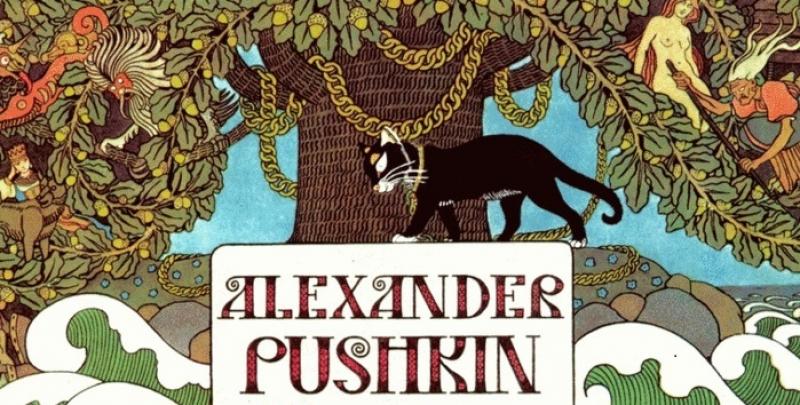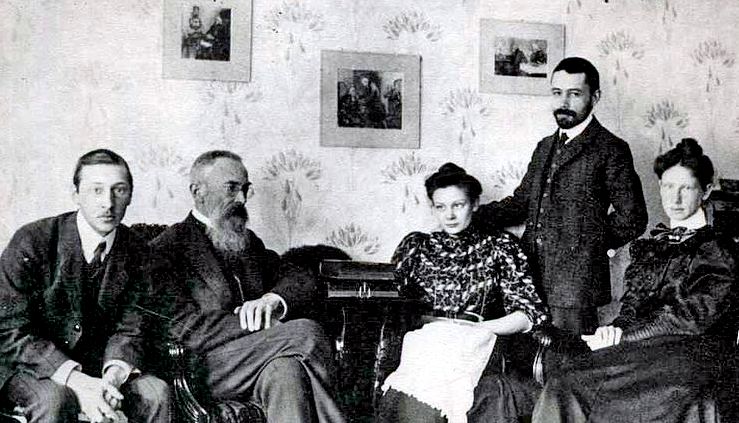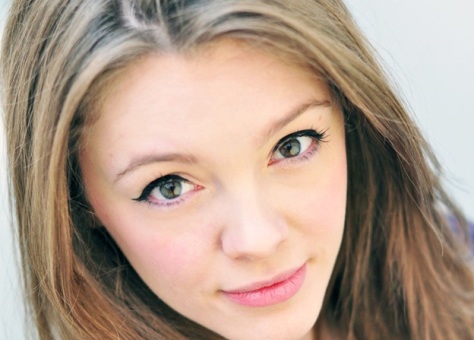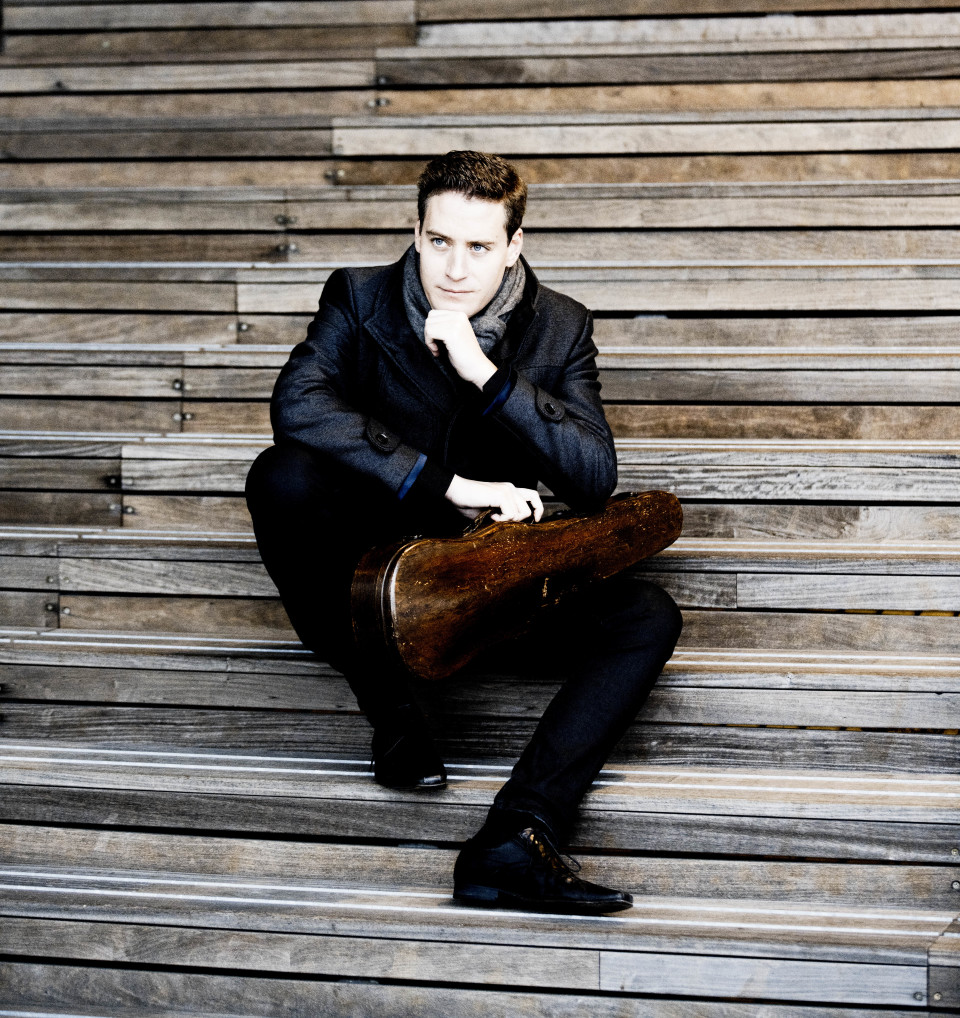Baráti, Lyddon, LPO, Jurowski, RFH review - Stravinsky's bright but derivative beginnings | reviews, news & interviews
Baráti, Lyddon, LPO, Jurowski, RFH review - Stravinsky's bright but derivative beginnings
Baráti, Lyddon, LPO, Jurowski, RFH review - Stravinsky's bright but derivative beginnings
Fine programme in principle, but lacking a significant core

"You have to start somewhere," Debussy is reported to have said at the 1910 premiere of The Firebird. Which, at least, is a very good "somewhere" for Stravinsky, shot through with flashes of the personality to come.
What's worth salvaging of the symphony, revised (curiously enough) in 1913, the year of The Rite of Spring? (Stravinsky, incidentally, never referred to it as "No 1," as the LPO publications department seems to think, which would grace it with a higher status than it deserves, though he did record it as conductor in later life. Update: See Richard Bratby's comment below). The first movement is plump and placid, though smoothly upholstered by a London Philharmonic Orchestra on fine form, the third a blatant homage to the finale of Tchaikovsky's "Pathétique" Symphony without the depth of feeling behind it, the finale very much third-best to Borodin in festive mode.
 That leaves the effervescent scherzo; there isn't a dull one in the whole history of the Russian symphony, that I know of at any rate, and it's delicious to know that Diaghilev had it played in Ballets Russes intervals; the unlikely Savoyard may have liked its resemblance to the weather chat of Major-General Stanley's daughters in The Pirates of Penzance. At any rate the LPO's wonderful principal flautist Juliette Bausor managed to make real phrasing out of the babble; and she got to sing one of the finest legato melodies of the evening at the beginning of the concert, a welcome chance to hear the rarely-performed Skazka (Fairy Tale) of Stravinsky's mentor Rimsky-Korsakov (pictured above on the left with Stravinsky in 1908).
That leaves the effervescent scherzo; there isn't a dull one in the whole history of the Russian symphony, that I know of at any rate, and it's delicious to know that Diaghilev had it played in Ballets Russes intervals; the unlikely Savoyard may have liked its resemblance to the weather chat of Major-General Stanley's daughters in The Pirates of Penzance. At any rate the LPO's wonderful principal flautist Juliette Bausor managed to make real phrasing out of the babble; and she got to sing one of the finest legato melodies of the evening at the beginning of the concert, a welcome chance to hear the rarely-performed Skazka (Fairy Tale) of Stravinsky's mentor Rimsky-Korsakov (pictured above on the left with Stravinsky in 1908).
Skazka is putatively based on the Prologue to Alexander Pushkin’s first masterpiece, the verse romance Ruslan and Lyudmila, in which a cat held to an ocean-side oak tree by a gold chain sings all the familiar Russian fairy tale components. We can make some of them out – Baba Yaga, for instance, in spiky wind chords indebted to Glinka’s characterisation of the witch Naina in his operatic Ruslan – and the atmosphere is close to Kashchey the Immortal, Korsakov’s one-act opera which gave so much musically to The Firebird (Stravinsky quotes its damsel-in-distress theme in the finale of the E flat Symphony). Bewitchingly scored ideas all, but they don’t amount to much.
 Nor do the three lopsided movements of Stravinsky’s Opus Two, Faun and Shepherdess, also based on Pushkin poetry. Debussyan impressionism enters the otherwise Russian fantasy picture here, and it was good to get such a lovely mezzo colour from recently-graduated Angharad Lyddon (pictured right). She holds the stage personably, too; what a grievous omission on the LPO’s part, though, not to give us the Pushkin text and translation either in the programme – hardly a generous celebration of a major festival – or in surtitle form.
Nor do the three lopsided movements of Stravinsky’s Opus Two, Faun and Shepherdess, also based on Pushkin poetry. Debussyan impressionism enters the otherwise Russian fantasy picture here, and it was good to get such a lovely mezzo colour from recently-graduated Angharad Lyddon (pictured right). She holds the stage personably, too; what a grievous omission on the LPO’s part, though, not to give us the Pushkin text and translation either in the programme – hardly a generous celebration of a major festival – or in surtitle form.
Glazunov’s Violin Concerto is oddly proportioned, too, despite its compactness: all introspective lyricism verging on the soporific until it reaches one of the best finales in the concerto repertoire, twinkling variations on a hunting theme. It’s an inspiration in which you want to see the violinist having fun; but Kristóf Baráti (pictured below by Marco Borggreve) deprived us of any pleasure in the visual dimension, eyes down and serious throughout. No denying the deep tone and mostly spot-on intonation, though, and he spun a bewitching line in the Glazunov-orchestrated Meditation from Tchaikovsky’s Souvenir d’un lieu cher which followed.
 This was Tchaikovsky’s first idea for the slow movement of his Violin Concerto – the ultimate vivacissimo of which Glazunov definitely rivals – and Glazunov parallels the clarinet embroideries of the much better-known concerto canzona in the reprise of the melancholy melody. Guest principal James Burke gave us more personality than Baráti, joining Bausor to prove that the LPO’s wind principals are every inch the characterful equal of the Philharmonia’s, on show so strikingly in last Thursday’s Dvořák concert, or those of the BBC Symphony Orchestra. Treasure your London orchestas, and do not seem to wish Brexit on their healthy pan-European constitution, as LPO Chief Executive and Artistic Advisor Timothy Walker appeared to do in a gobsmacking Daily Telegraph article last week. There are questions there which he needs to answer; but meanwhile the orchestra is in peerless shape, so thanks partly to Walker as well as mainly to Jurowski for that.
This was Tchaikovsky’s first idea for the slow movement of his Violin Concerto – the ultimate vivacissimo of which Glazunov definitely rivals – and Glazunov parallels the clarinet embroideries of the much better-known concerto canzona in the reprise of the melancholy melody. Guest principal James Burke gave us more personality than Baráti, joining Bausor to prove that the LPO’s wind principals are every inch the characterful equal of the Philharmonia’s, on show so strikingly in last Thursday’s Dvořák concert, or those of the BBC Symphony Orchestra. Treasure your London orchestas, and do not seem to wish Brexit on their healthy pan-European constitution, as LPO Chief Executive and Artistic Advisor Timothy Walker appeared to do in a gobsmacking Daily Telegraph article last week. There are questions there which he needs to answer; but meanwhile the orchestra is in peerless shape, so thanks partly to Walker as well as mainly to Jurowski for that.
rating
Explore topics
Share this article
Add comment
The future of Arts Journalism
You can stop theartsdesk.com closing!
We urgently need financing to survive. Our fundraising drive has thus far raised £49,000 but we need to reach £100,000 or we will be forced to close. Please contribute here: https://gofund.me/c3f6033d
And if you can forward this information to anyone who might assist, we’d be grateful.

Subscribe to theartsdesk.com
Thank you for continuing to read our work on theartsdesk.com. For unlimited access to every article in its entirety, including our archive of more than 15,000 pieces, we're asking for £5 per month or £40 per year. We feel it's a very good deal, and hope you do too.
To take a subscription now simply click here.
And if you're looking for that extra gift for a friend or family member, why not treat them to a theartsdesk.com gift subscription?
more Classical music
 Solomon, OAE, Butt, QEH review - daft Biblical whitewashing with great choruses
Even a top soprano and mezzo can’t make this Handel paean wholly convincing
Solomon, OAE, Butt, QEH review - daft Biblical whitewashing with great choruses
Even a top soprano and mezzo can’t make this Handel paean wholly convincing
 Two-Piano Gala, Kings Place review - shining constellations
London Piano Festival curators and illustrious friends entertain and enlighten
Two-Piano Gala, Kings Place review - shining constellations
London Piano Festival curators and illustrious friends entertain and enlighten
 Echo Vocal Ensemble, Latto, Union Chapel review - eclectic choral programme garlanded with dance
Beautiful singing at the heart of an imaginative and stylistically varied concert
Echo Vocal Ensemble, Latto, Union Chapel review - eclectic choral programme garlanded with dance
Beautiful singing at the heart of an imaginative and stylistically varied concert
 Scott, Irish Baroque Orchestra, Whelan, RIAM, Dublin review - towards a Mozart masterpiece
Characteristic joy and enlightenment from this team, but a valveless horn brings problems
Scott, Irish Baroque Orchestra, Whelan, RIAM, Dublin review - towards a Mozart masterpiece
Characteristic joy and enlightenment from this team, but a valveless horn brings problems
 Classical CDs: Voice flutes, flugelhorns and froth
Baroque sonatas, English orchestral music and an emotionally-charged vocal recital
Classical CDs: Voice flutes, flugelhorns and froth
Baroque sonatas, English orchestral music and an emotionally-charged vocal recital
 Kanneh-Mason, Britten Sinfonia, Shave, Milton Court - a grin and a big beaming smile
A pair of striking contemporary pieces alongside two old favourites
Kanneh-Mason, Britten Sinfonia, Shave, Milton Court - a grin and a big beaming smile
A pair of striking contemporary pieces alongside two old favourites
 theartsdesk at the New Ross Piano Festival - Finghin Collins’ musical rainbow
From revelatory Bach played with astounding maturity by a 22 year old to four-hand jazz
theartsdesk at the New Ross Piano Festival - Finghin Collins’ musical rainbow
From revelatory Bach played with astounding maturity by a 22 year old to four-hand jazz
 First Person: Manchester Camerata's Head of Artistic Planning Clara Marshall Cawley on questioning the status quo
Five days of free events with all sorts of audiences around Manchester starts tomorrow
First Person: Manchester Camerata's Head of Artistic Planning Clara Marshall Cawley on questioning the status quo
Five days of free events with all sorts of audiences around Manchester starts tomorrow
 Goldscheider, Brother Tree Sound, Kings Place review - music of hope from a young composer
Unusual combination of horn, strings and electronics makes for some intriguing listening
Goldscheider, Brother Tree Sound, Kings Place review - music of hope from a young composer
Unusual combination of horn, strings and electronics makes for some intriguing listening
 theartsdesk Q&A: composer Donghoon Shin on his new concerto for pianist Seong-Jin Cho
Classical music makes its debut at London's K-Music Festival
theartsdesk Q&A: composer Donghoon Shin on his new concerto for pianist Seong-Jin Cho
Classical music makes its debut at London's K-Music Festival

Comments
Lovely, thought-provoking
It seems very odd to number a
It seems very odd to number a symphony when you've only composed one, without being sure there are more to follow; as you say, Stravinsky must have been confident,and it's very surprising that he revised it in 1913 Later, though, he always referred to this just as 'in E flat', and of course didn't number the successors. Interesting, all the same, and thanks for taking the time to explain. I wish you'd been given space to write more, by the way. Programme production needs a bit of a shake-up IMO. But again maybe it's a question of ever-limited budgets.
Indeed - it's certainly